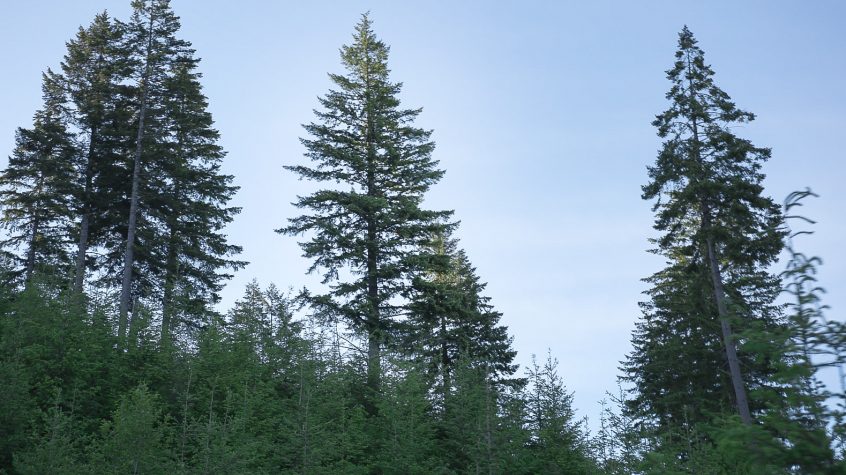On the heels of one of Washington state’s most severe wildfire seasons, Olympia lawmakers have responded with legislation that aims to promote healthy and resilient forests.
The House of Representatives unanimously passed 2SHB 1784which would require more fuel breaks on public lands to prevent severe wildfires and improve the overall health of state-owned forestland. The bill would build upon the state’s Department of Natural Resources forest health assessment framework that would include thinning a million acres of land by 2033.
One key part of the legislation is to install more fuel breaks, which removes small trees, grass and shrubs that feed a fire, through increased controlled burns and mechanical thinning to reduce the amount of flammable smaller sized and more dense vegetation. Dry branches and undergrowth can act as kindling, allowing for blazes to swiftly move up tall trees and through forestlands. But taking away the easily flammable materials can stop the spread of wildfires as they run out of easily combustible fuel.
Quoted in a recent Capital Press article, 2HHB 1784 sponsor Rep. Joel Kretz (R-Wauconda) said:
The breaks, made by controlled burns or thinning vegetation before fires start, would give firefighters a place to make a stand…I just don’t want to concede the whole forest. Sometimes we don’t have a highway for 50 miles.
Fuel breaks have been proven to work, even in large-scale wildfires. Fuel breaks on land owned by Sierra Pacific Industries helped buy time for firefighters battling the Camp Fire in California. As evidence with limited damage on Sierra Pacific Industries’ forestland around Paradise Lake, investing resources in fuel breaks proved a wise strategy that reduces the intensity of wildfires, saving property damage and potentially lives. According to an NPR story:
Earlier this year, Sierra Pacific had thinned out underbrush and some of the trees to create what’s known as a fuel break. This had the effect of slowing down the Camp Fire long enough to allow firefighters to safely stage here and make a stand against the fire.
“We don’t think we’re being naive in that this is a panacea for every condition every time but this really is a start,” (Sierra Pacific Vice President Dan) Tomascheski says. “You’re never going to stop these modern megafires once they blow up, he says, but a key fuel break like this might give firefighters the upper hand on the second or third day.”
There isn’t a lot of good news after the Camp Fire. But the small success around this fuel break makes the case for the kind of work that foresters say needs to be done now across millions of acres of private and public lands across the West.
The Washington Department of Natural Resources reported an astonishing 1,850 wildfires in 2018 that burned nearly 440,000 acres. Of last year’s blazes, 40 percent of those fires were west of the Cascades, underscoring that wildfires are an issue that affects the entire state.
We want to thank Representatives Kretz, Brian Blake (D-Aberdeen) and Matt Shea (R-Spokane Valley) for sponsoring 2SHB 1784, and all of the House members who unanimously supported a bill that will help ensure Washington’s forestlands are healthy and resistant to massive wildfires. The bill now moves to the Senate, where it received its first reading Friday in the Senate Agriculture, Water, Natural Resources & Parks committee.
